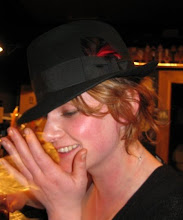A Response to Janet Emig’s “Non-Magical Thinking: Presenting Writing Developmentally in Schools”
1. The reinforcement that “persons who don’t themselves write cannot sensitively, even sensibly, help others learn to write.”
2. And the idea that “Developmental errors contrast readily with mistake in that developmental errors forward learning while mistakes impede it. Developmental errors have two characteristics that mistakes do not: 1) they are bold, chance-taking; 2) and they are rationally intelligent.”
The first item on the list is something we’ve spent much time talking about in the last week; indeed it is a central tenant of the National Writing Project’s philosophy. In order to teach writing, we must practice writing (a nice antithesis to the old put-down “those who can’t, teach”). It is also something I had previously come to understand as a student…it just didn’t make sense to me that I should pay any attention to someone leading a poetry workshop if they didn’t themselves write. What possible wisdom could they impart? Further, Emig’s assertion that teachers must also “introspect upon their writing, since without reflection there has been no experience” seems a key distinction (and one I wholeheartedly buy into!). Her succinct statement makes explicit something I believe has been implicit in many of our conversations (and also in many of our assignments—like these reading responses). We cannot understand our own processes, our own learning, unless we take the time to reflect on it. Note to Anna’s teacher self: give students time (and assignments) to reflect on their writing and learning!


No comments:
Post a Comment